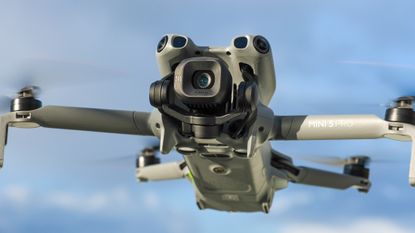Cameras
The latest Cameras breaking news, comment, reviews and features from the experts at T3
Explore Cameras
-
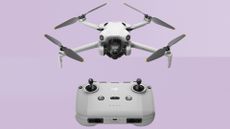
"Probably the best gadget I have bought in years!": DJI's sub-250g drone gets a major price cut on Amazon
Beginner-friendly but pro-specced drone gets a tasty discount
By Matt Kollat Published
-

New Canon compact camera celebrates 30 years of pocket-sized photography
The Canon Powershot G7X Mark III has a new lease of life
By Sam Cross Published
-
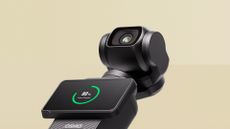
DJI’s got company as a Chinese smartphone brand hints at Osmo Pocket rival vlogging camera
The vlogging camera market is heating up, and vivo wants a slice of the pie
By Matt Kollat Published
-
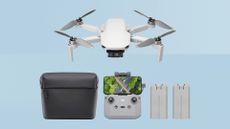
DJI’s best beginner drone is back at its lowest ever price on Amazon
The Mini 4K with an extra battery and a carry case is selling for £70 less right now
By Matt Kollat Published
-
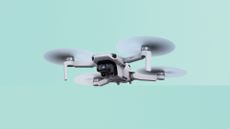
DJI is lining up not one but two entry-level drones as Mini 4K successors
New FCC listings for the Lito 1 and Lito X1 suggest DJI is refreshing its entry-level lineup
By Matt Kollat Published
-

DJI looks set to revisit the 360º camera space sooner than anyone expected
Paperwork filings suggest DJI is preparing an update to its Osmo 360 camera
By Matt Kollat Published
-
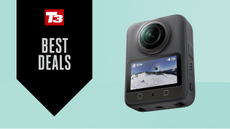
DJI’s UK Winter Sale is now live, with up to 25% off drones, action cams and gimbals
Find decent price drops across DJI most popular gear - but beware, these are 'limited time deals' and won't stick around for long
By Lee Bell Published
-
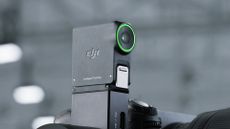
Drone giant DJI refreshes its flagship product with longer battery life and smarter tracking
The latest Ronin gimbal focuses on stability, intelligent tracking and all-day shooting for solo videographers
By Matt Kollat Published
-

DJI’s Osmo 360 Adventure Combo is reduced by over 30% on Amazon right now
With three batteries, case and Invisible Selfie Stick, it’s a rare price cut on DJI’s more practical 360 camera bundle
By Lee Bell Published
-
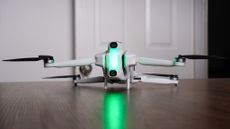
Insta360-backed Antigravity extends deals on its pioneering drone to more countries
For a limited time, the A1 is available for less outside the US
By Matt Kollat Published
-
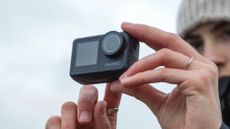
Best budget action camera 2026: Feature-packed cams with bargain price tags
A round-up of the best budget action cameras to help you capture your adventures without breaking the bank
By Matt Kollat Last updated
-

Osmo Pocket 4 Pro leak suggests DJI’s next vlogging gimbal will sport a dual-camera setup
A 'slope-side' photo appears to show a Pocket 4 Pro with two front-facing lenses, hinting that DJI’s next creator cam could arrive soon
By Lee Bell Published
-
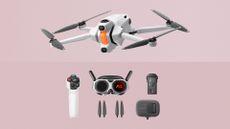
World-first 360º drone gets its first price cut and gains a useful new feature
Antigravity's A1 is now cheaper and easier to get used to
By Matt Kollat Published
-

Insta360’s CEO may have accidentally revealed two upcoming cameras in one shot
A Weibo post from Insta360 boss JK Liu has sparked chatter online about a new white camera and a blurred “pocket” device hiding in the background
By Lee Bell Published
-

Potensic Atom 2 PTD 1 controller review: elevate your flying with Potensic's latest hand controller
The Potensic Atom 2 is now available with an all-in-one hand controller that makes flying a veritable breeze
By Derek Adams Published
-

DJI Avata 360 suddenly appears on a retailer site – but something doesn’t add up
An unannounced DJI drone has gone up for pre-order in the US, complete with bundles, pricing and product images
By Matt Kollat Published
-
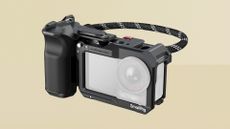
SmallRig's 'incredible material quality' DJI accessory with 'nice rubber on the grip' hits its lowest ever price on Amazon
Improve your action camera photography game for less
By Matt Kollat Published
-

The Fujifilm X Half finally made sense once I stopped treating it like a camera
This compact camera is far more capable than it gets credit for – you just have to use it in the right way
By Sam Cross Published
-
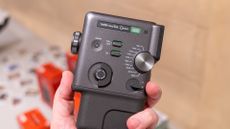
Fujifilm invents a time machine – I tested the Instax Mini Evo Cinema camera and travelled back in time
With Super 8 vibes, the latest Instax camera is a blast from the past and modern marvel in one
By Rik Henderson Last updated
-
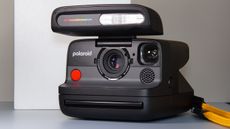
"The best Polaroid camera you can buy" is now under £200 in killer bundle deal
If I didn't already own one, I'd be snapping this up fast
By Sam Cross Published
-
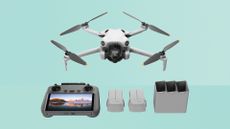
DJI Mini 4 Pro Fly More Combo falls to Black Friday-level prices in January sale
Save £130 on the last truly sub-250g Mini at Amazon
By Matt Kollat Published
-
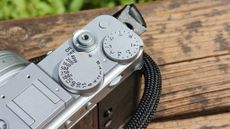
Fujifilm X-T6 leaks on retailer site – and it looks like some big upgrades are coming
The next-gen Fuji flagship is expected later this year
By Sam Cross Published
-
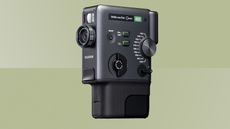
New Fujifilm compact camera is a dream for retro videographers
This is unlike any instant film camera you've seen before
By Sam Cross Published
-
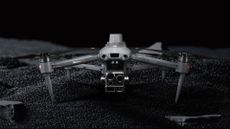
AI-enhanced cameras are arriving on drones and this model shows how powerful the idea could become
GDU’s UAV P300 shows where drone tech is heading
By Matt Kollat Published
-
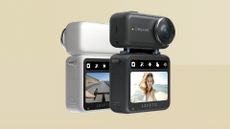
An 8K camera from a robovac brand? Dreame Leaptic thinks it can take on DJI
Dreame just surprised everyone with an 8K action camera that rivals DJI
By Matt Kollat Published
-
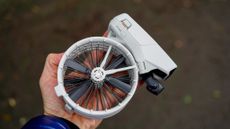
My favourite DJI beginner drone is down to its lowest ever price in the January Sale
A lightweight, creator-friendly drone with big-camera features just dipped to a record low
By Matt Kollat Published
-

I used the Leica M-EV1 – Leica's most modern camera brings the M-Series squarely into the 21st century
For the first time ever, an M-Series camera with an EVF arrives – and we've put it to the test
By Sam Cross Published
-
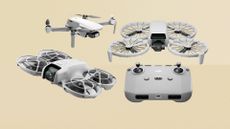
Best Boxing Day DJI drone sales – experts select the best buys in the sale
Should you buy a new DJI this Boxing Day? Yes, you should.
By Matt Kollat Published
-

Beginner-friendly DJI Neo 4K selfie drone crashes to its cheapest price ever for Boxing Day
The dinky drone is selling for peanuts this Christmas
By Matt Kollat Published
